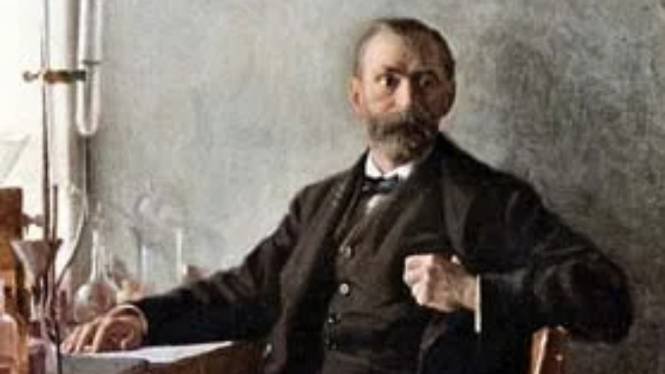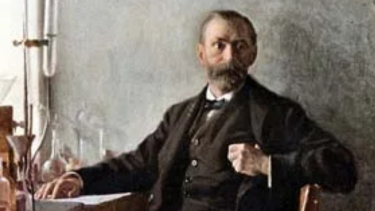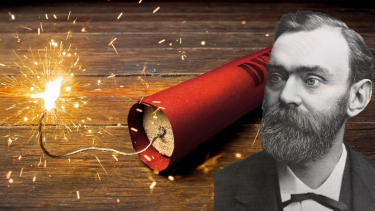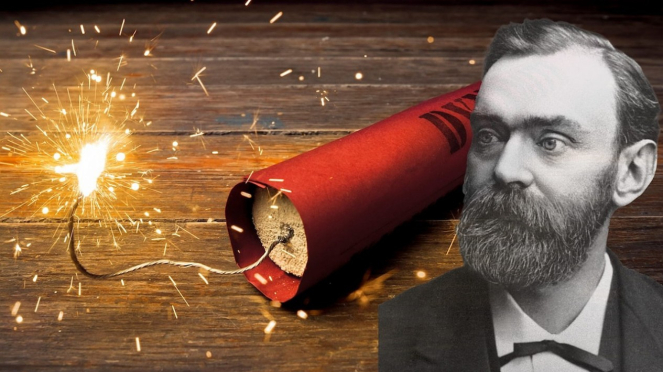Life Story of Alfred Nobel: Initiator Nobel Prizes Choose Atheist
- Svenska Portrattarkivet
VIVA – Alfred Nobel was a Swedish chemist, engineer, and industrialist. He invented dynamite and other explosives. He is also famous for the annual awards in science, literature, and peace gave in his name.
He was born in Stockholm, the capital of Sweden on October 21, 1833, to Immanuel Nobel and Andriette Ahlsell Nobel. His father was an engineer and inventor. Immanuel Nobel built bridges, and buildings, and experimented with several ways of blasting rocks. As a child, Alfred was prone to illness.
Over time, Immanuel Nobel's business ventures suffered losses. The family left Stockholm in 1842 and came to St. Petersburg, Russia to start a business as a manufacturer of explosive mines and machine tools.
At 17, Alfred Nobel could speak and write in Swedish, Russian, French, English, and German, as quoted from the Jagran Josh website, Wednesday, December 7, 2022.
Alfred Nobel.
- Getty Images
In 1850, he left Russia and spent a year in Paris, France to study chemistry. Later, Alfred Nobel settled in the United States (US) and worked under the direction of John Ericsson, a maker of sturdy warship monitors.
Two years later he returned to St. Petersburg to work in his father's factory that made military equipment during the Crimean War.
Then, in 1856, the war ended and the factory faced hard times. They then switched to peacetime production of steamship engines. Four years later, the factory went bankrupt. Alfred Nobel and his parents then returned home to Sweden.
In 1862, Nobel built a small factory to produce nitroglycerin. He also researched to find a safe way to control the explosion of explosives.
Furthermore, he invented a practical detonator one year later. This detonator consisted of a wooden plug inserted into a larger charge of nitroglycerin, stored in a metal container. This invention marked the start of Alfred Nobel's reputation as an inventor and also the wealth he earned as an explosive maker.
Patung Alfred Nobel
- AFP
A blasting cap that was an improved detonator was invented by him in 1865. This invention inaugurated the modern use of high explosives. His next important invention was dynamite in 1867. He was granted patents for his invention in Great Britain the same year and in the United States (US) one year later.
With the invention of dynamite, Alfred Nobel gained worldwide fame and was used as a blasting funnel, cutting canals, and building railroads and highways. To produce dynamite, he built a network of factories across Europe in the 1870s and 1880s. Nobel invented a more powerful form of dynamite in 1875 which was patented the following year.
Various things were also invented by him such as artificial silk and leather. In all, Alfred Nobel registered more than 350 patents in several countries.
Two things are interesting about him. Nobel was a man who never married and was an atheist. Initially, he was a Lutheran Christian, later converted to agnostic, and finally in his old age became an atheist. Despite being an atheist, he always donated to the church.
Alfred Nobel died in 1896 from a brain hemorrhage at his villa in San Remo, Italy. At the time of his death, he had a large business consisting of over 90 factories producing explosives and ammunition. He had deposited his will in a bank in Stockholm, the contents of which surprised family, friends, and the general public when it was opened.
Alfred Nobel left most of his wealth in trust to establish what has become known as the international award, the Nobel Prize, to this day. The award, which he later institutionalized, reflects his lifelong interests in physics, chemistry, physiology, and literature.























